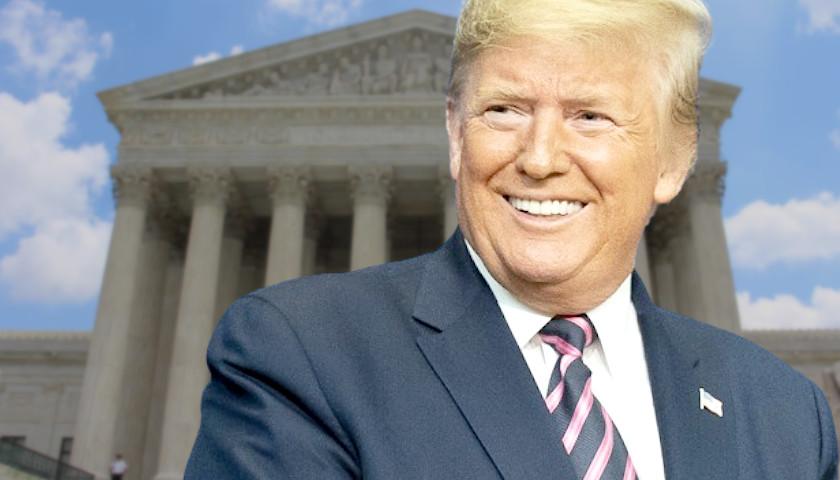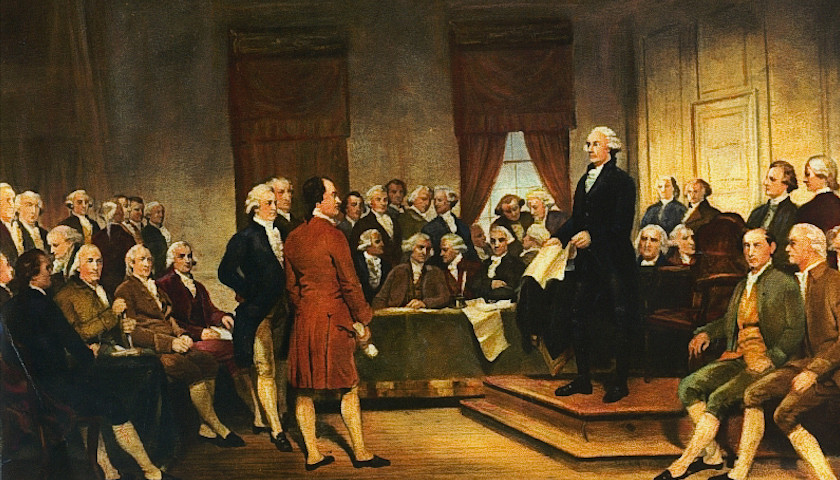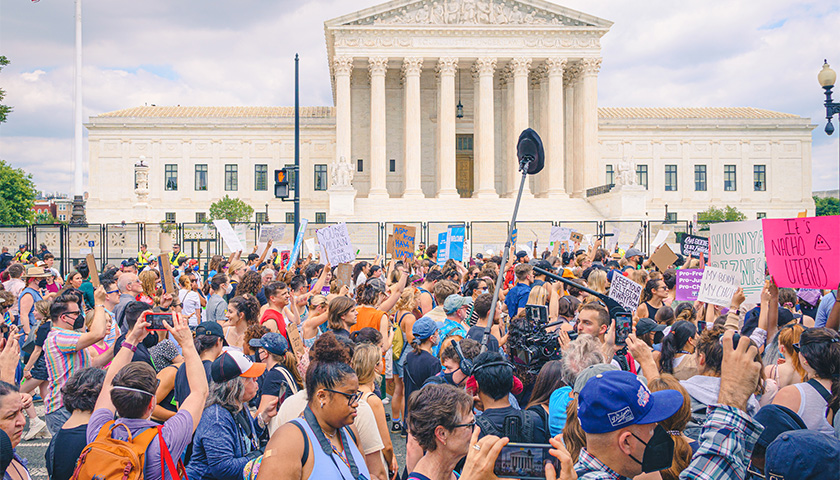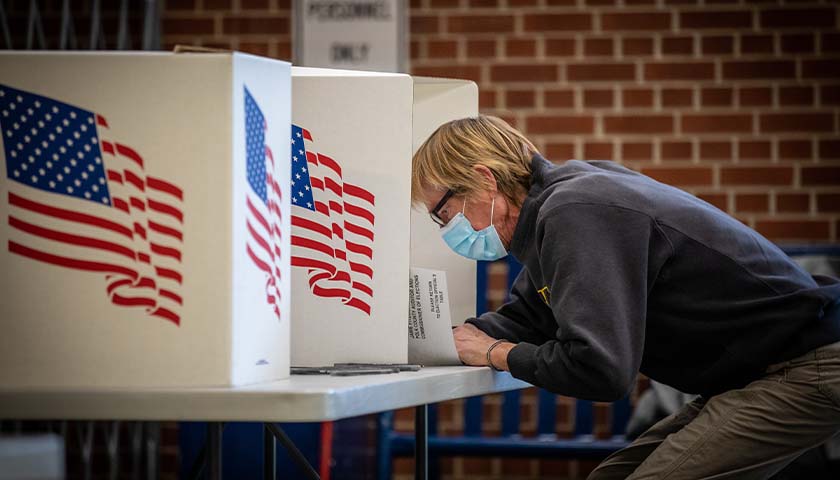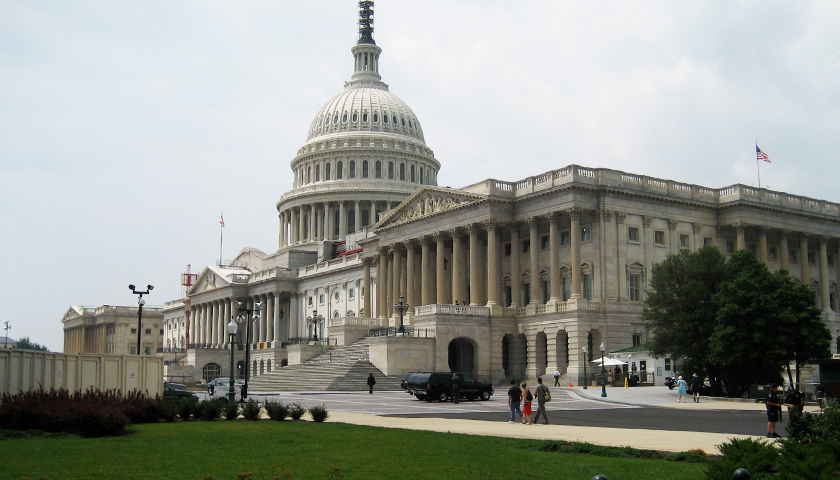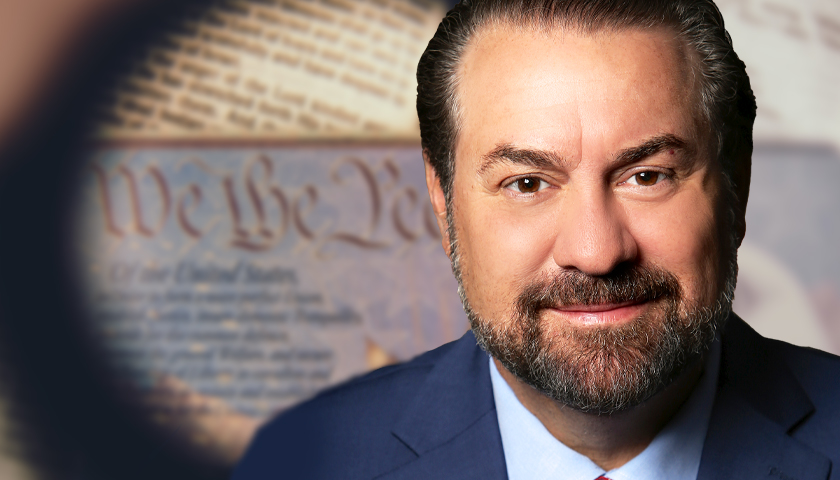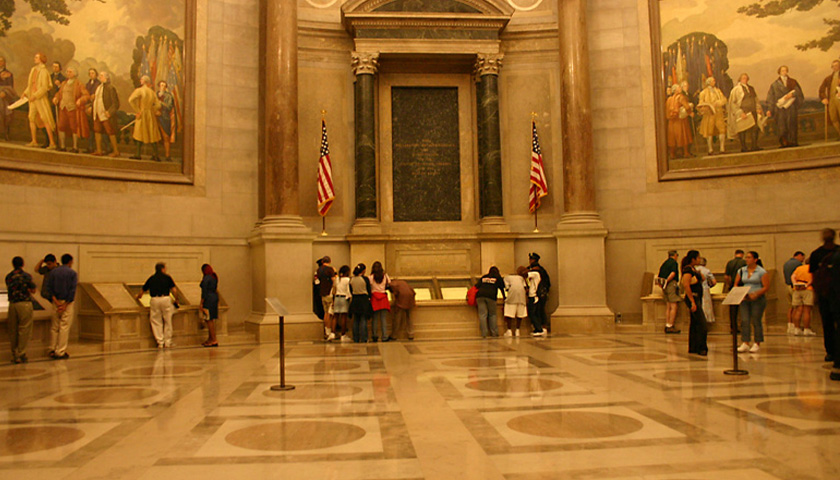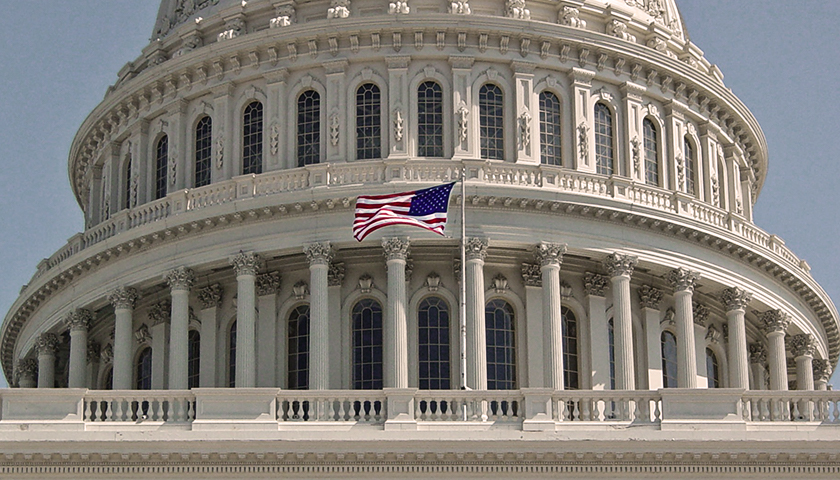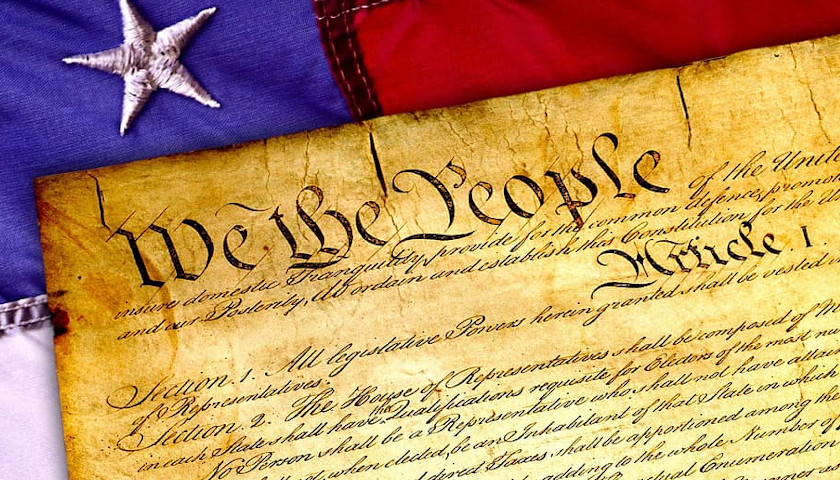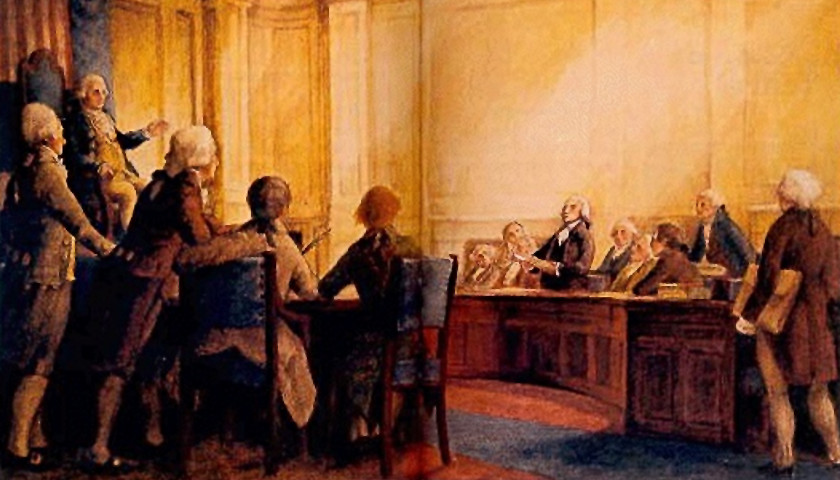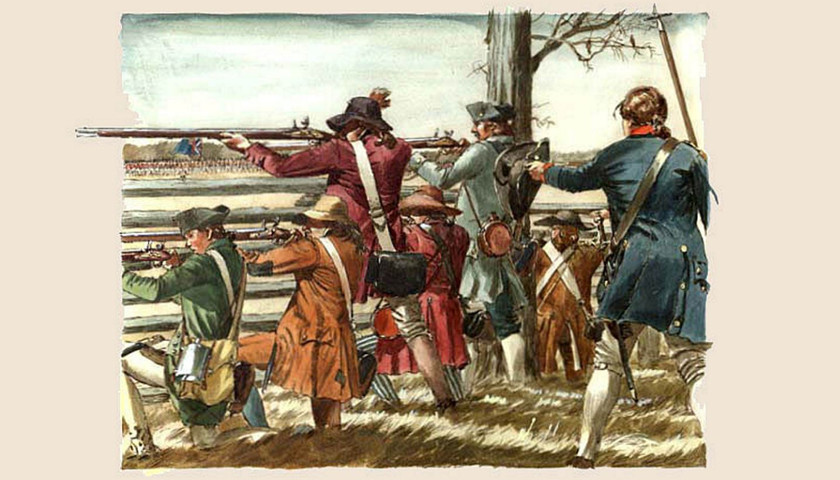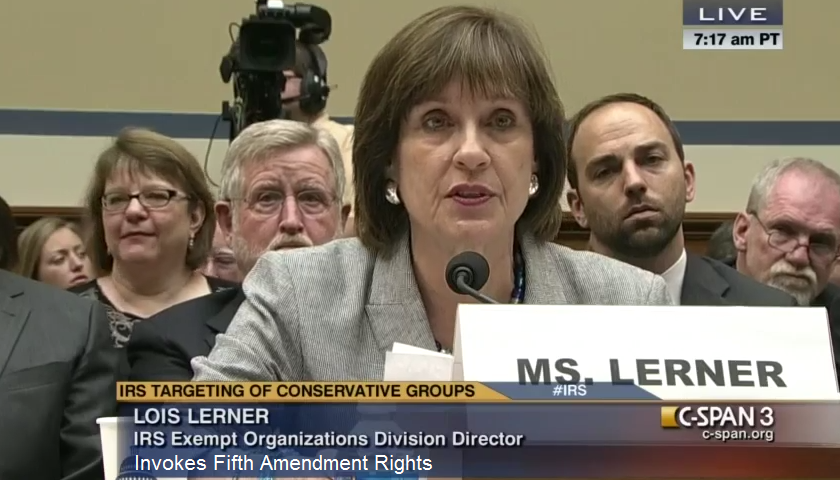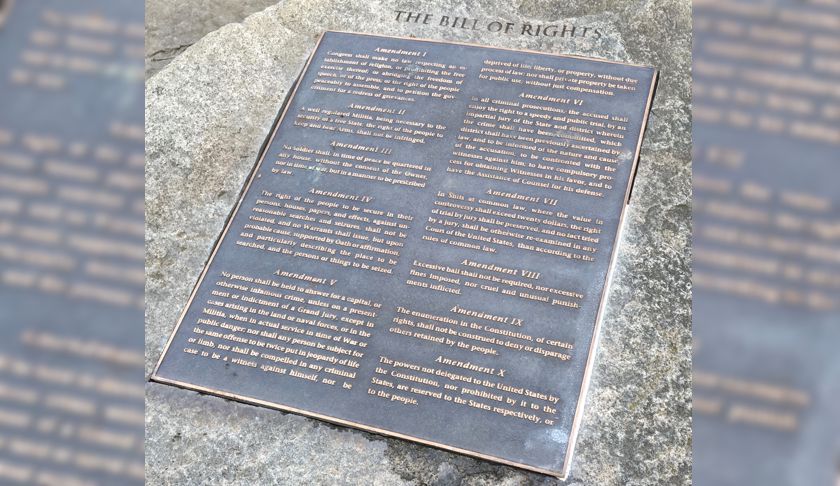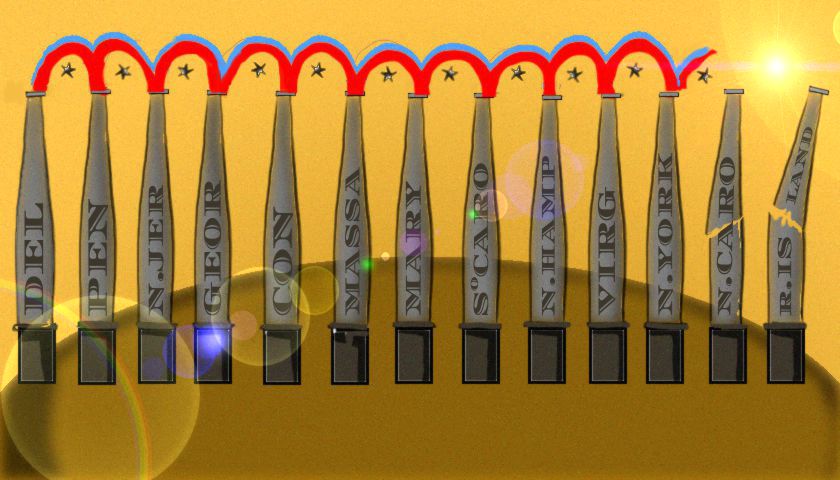There are many reasons why the United States Supreme Court must overturn the Colorado Supreme Court’s decision holding that former President Trump is barred from the presidential ballot under Section 3 of the 14th Amendment, which purports to prohibit a person who has engaged in “insurrection” from holding office.
Read the full storyTag: Bill of Rights
Commentary: American Self-Government Is Falling Apart
The American system does not require unanimity. In fact, its design presumes deep disagreement on matters of morality and policy.
This is why questions like religion are left to individual conscience, and why most policy is left to states or even smaller units, where the law’s touch will not be felt as harshly, because it reflects the more similar values of a smaller group. Finally, regardless of who has the reins of the federal government, the Constitution renders a great deal of substantive activity off limits, as exemplified by the Bill of Rights.
Read the full storyCommentary: Protecting Our Forgotten Rights
Robbing a bank is a crime everywhere. But in some places and times you could become a criminal just by growing vegetables, feeding the homeless, playing poker or working without a government-mandated license.
African immigrant Tedy Okech risked arrest when she started working as a hair braider. She learned the craft in her youth by practicing on her mother and sisters. When she settled in Idaho in 2005, she found neighbors willing to pay for her skills. Soon she had a thriving side gig, which supplemented her income as a part-time insurance agent.
Read the full storyCommentary: Attacks on Pregnancy Centers Are More than Mere Protests
There is great irony in the violence directed against pregnancy centers since the leak and then official release of the Supreme Court’s Dobbs v. Jackson decision. Reports of vandalism and destruction include graffiti such as “if abortions aren’t safe neither are you” and firebombing.
Pregnancy centers across America offer many services to women and men, their unborn children, and children post-birth—including pregnancy and sexually transmitted disease testing, ultrasounds, counseling, diapers, clothing, medical referrals for healthcare or community resources, and parenting classes. These services are provided free and funded by donations.
Read the full storyKnox County Mayor Glenn Jacobs: ‘The Second Amendment Really Represents the Power Lies with the People’
Friday morning on The Tennessee Star Report, guest host Gulbransen welcomed Knox County Mayor Glenn Jacobs to the newsmaker line to discuss the Bill of Rights, 2nd Amendment, and the security of public schools.
Read the full storyBallotpedia’s Top 15 State Ballot Measures to Watch in 2021
A total of 39 statewide ballot measures were certified for the 2021 ballot in nine states, 24 of which will be decided by voters on Nov. 2.
Question 1 was designed to stop the New England Clean Energy Connect (NECEC), a 145-mile long, high-voltage transmission line project that would transmit around 1,200 megawatts from hydroelectric plants in Quebec to electric utilities in Massachusetts and Maine. Construction of NECEC began after the project received a presidential permit on Jan. 15, 2021. The ballot initiative would prohibit the construction of high-impact electric transmission lines in the Upper Kennebec Region, retroactive to September 16, 2020, thus prohibiting Segment 1 of NECEC. Segment 1 was permitted to begin construction on May 13, 2021.
Read the full storyCommentary: Targeting Citizens for Expressing Traditional Values is a Hallmark of Tyranny
All my life I’ve felt a bond with places and with people.
Growing up in Boonville, North Carolina, population then about 600, I went to elementary school and the Methodist church, knew many of the merchants in town—Harvey Smith, grocer and mayor for many years, Donald the barber, Mr. Weatherwax who owned the pharmacy and was kind enough to let me read comic books on the premises, and a dozen more adults—and relished my friends and their families. Boonville’s red clay and rolling hills are as much a part of me as any genetic code.
Read the full storyOhio Lawmakers Introduce ‘Bill of Rights’ for Foster Children
Two Ohio state lawmakers, Senators Teresa Fedor (D-Toledo) and Tina Maharath (D-Canal Winchester), introduced a bill on Friday to create the Foster Youth Bill of Rights.
The potential law, if enacted, would inform individuals in the foster care system of their rights when they are placed in custody of the state.
Read the full storyThe Tennessee Star Executive Editor Christina Botteri Talks Upcoming National Constitution Bee This Saturday
Thursday morning on the Tennessee Star Report, host Michael Patrick Leahy welcomed The Tennessee Star’s Executive Editor, Christina Botteri in studio to talk about the upcoming National Constitution Bee to be held this Saturday in Brentwood.
Read the full storyOhio Rep. Wenstrup Rips Woke Bureaucrats for Slapping ‘Harmful Content’ Warning on U.S. Constitution
Wednesday, after signing on to a letter sent by 44 Republican lawmakers to the National Archives and Records Administration (NARA), which recently placed “harmful content” labels on historical documents including the U.S. Constitution and Bill of Rights, Rep. Brad Wenstrup (R-OH-02) blasted the federal government organization.
“We must stand together against those who wish to destroy the foundation of our American values with their ‘woke’ agenda,” he told The Ohio Star. “We must educate future generations on all aspects of our past – celebrating the good and acknowledging our failures. Those who seek to weaken the timeless truths and foundational texts seek only to erase our shared history. We cannot stand by silently.”
Read the full storyArizona Attorney General Condemns Biden Administration’s Warning Label on Constitution, Declaration
Arizona Attorney General Mark Brnovich condemned the National Archives Records Association’s (NARA) decision to label documents with a “harmful language” alert.
Brnovich demanded that NARA immediately remove the warning labels from documents including the Constitution, Declaration of Independence and Bill of Rights, in a Sept. 10 letter to the agency first obtained by the Daily Caller News Foundation. The warning labels only serve to further divide Americans, the attorney general said.
“This is shameful action from the National Archives, and the misguided ‘alerts’ should be taken down immediately,” Brnovich wrote to U.S. Archivist David Ferriero. “There is nothing ‘harmful’ about our founding documents. These inspired writings governed the formation of our new country in the late 18th Century and provided the roadmap for it to grow into the greatest nation in history.”
Read the full storyOhio Lawmakers Mum After U.S. Constitution Slapped with ‘Harmful Language Alert’ by Woke Bureaucrats
After the bureaucrats at the National Archives and Records Administration (NARA) slapped a warning label on the U.S. Constitution and Bill of Rights, Ohio lawmakers are ducking the issue.
NARA, which organizes America’s historical documents in an online catalog, warns that some of the content could be triggering.
Read the full storyTennessee Firearms Association Had Its Most Successful Fundraiser to Provide Financial Support for Candidates Who Advocate for the Second Amendment
The Tennessee Firearms Association Legislative Action Committee (TFALAC) held its most successful annual fundraiser in the organization’s 25-year history on Saturday at the Farm Bureau Expo Center at the James E. Ward Agricultural Center on the Wilson County Fairgrounds in Lebanon.
The proceeds from the midday event, attended by several hundred, will be used to provide financial support to state legislative candidates who advocate for the Second Amendment.
Read the full storyCalifornia Refugee Craig Huey Weighs in on Williamson County Parent Leanne Baker’s Plea to School Board and Americans’ Rights
Thursday morning on the Tennessee Star Report, host Michael Patrick Leahy welcomed California refugee Craig Huey in studio to weigh in on Tuesday nights Williams County meeting where parent Leanne Baker made clear her rights as an American against mandated vaccinations and masks for her children.
Read the full storyCommentary: Incommensurability in 2021 American Politics
The ubiquitous term “paradigm” and the concept of “paradigm shifts,” were popularized by the historian and philosopher of science Thomas Kuhn. He used them to characterize, roughly, a scientific theory’s fundamental elements and the changes in fundamental elements that occur with scientific revolutions and changes in theory.
Read the full storyDan Gainor VP of MRC TechWatch Explains the Left’s ‘Freedom of Speech Does Not Equal Freedom of Reach’
Monday morning on the Tennessee Star Report, host Michael Patrick Leahy welcomed Dan Gainor Vice President of Business and Culture for the Media Research Center to the newsmakers line to discuss America’s international battle for its civil rights.
Read the full storyCommentary: Reflections on the Bill of Rights
The deep divisions plaguing our country may find a remedy in the most unlikely of places: the Bill of Rights. Ratified 229 years ago on December 15, 1791, the first 10 amendments to the Constitution are known collectively as the Bill of Rights. There is little public commemoration of December 15, in contrast to the tradition of celebrating two famous dates in the history of the United States—the Fourth of July, the day that the Declaration of Independence was adopted in 1776, and September 17, the day that the members of the Constitutional Convention signed the Constitution in Philadelphia in 1787. Yet, of the three documents, the Bill of Rights is perhaps the one most invoked by citizens and advocates in everyday life.
Read the full storyThirty-Six Orders Issued Banning People From Possessing Guns Under New Red Flag Law
Officials have issued thirty-six orders under Virginia’s new red flag law since it went into effect in July. The law allows judges to classify individuals as being a ‘substantial risk’ to themselves or others, and bans them from possessing firearms. The law was passed in January following a party-line vote with no Republicans voting in favor.
Read the full storyLeahy and Carmichael Compare and Contrast Black Lives Matter Demands to the Bill of Rights
Live from Music Row Monday morning on The Tennessee Star Report with Michael Patrick Leahy – broadcast on Nashville’s Talk Radio 98.3 and 1510 WLAC weekdays from 5:00 a.m. to 8:00 a.m. – host Leahy welcomed the original all-star panelist Crom Carmichael to the studio.
During the second hour, Carmichael read through the Black Lives Matter demands as posted on their website and compared it to the United States Bill of Rights as read by Leahy. The men concluded that their demands resemble that of a socialist-Marxist agenda.
Read the full storyToledo Ballot Proposition Would Extend Legal Rights of Constitution to Inanimate Body of Water
Voters in Toledo, Ohio went to the polls Tuesday to decide the fate of a “Lake Erie Bill of Rights” ballot proposition, which would extend the legal rights of the Ohio Constitution to an inanimate object. The referendum is the result of a years-long effort to clean up Lake Erie that begin in 2014 after more than 400,000 Toledo residents were told to stop drinking their tap water. According to Michigan Public Radio, a “bright green mass” called cyanobacteria encircled portions of the lake and produced a toxin known as microcystin, which can cause rashes, liver damage, and vomiting if consumed. If passed, the referendum would likely be struck down in the courts, but its placement on the ballot marks an “unprecedented” development nonetheless, according to University of Toledo law professor Ken Kilbert. “This is pretty unprecedented in the U.S. with respect to providing standing or rights for an inanimate object,” Kilbert told ABC 13. “I think it does have some legal flaws and may well suffer the fate of defeat in the court.” Markie Miller of Toledoans for Safe Water said her group will rework the wording of the document and work to get it replaced on the ballot…
Read the full storyJC Bowman Commentary: Dark Money + Union Money = Corrupt Politics
This election cycle we have already seen an influx of unaccountable cash, known as dark money, which pours into our state. Outside money hurts more than it helps. Tennessee voters were not swayed by big spending outsiders. It is worth noting the message the outsiders bring is almost always negative. If you don’t think this is an erosion of democracy, you’re not thinking about it hard enough. The formula is simple: Dark Money + Union Money = Corrupt Politics
Read the full storyCommentary: Reflecting on Our Bill of Rights
Regardless of personal political persuasion or affiliation, American citizens can unite around the Bill of Rights because it communicates our basic shared values. Limiting the power of government and safeguarding the rights of our citizens is something we must all make a conscientious effort to protect. We should be especially appreciative for the protection afforded in our Bill of Rights against a national government gaining ground against our most fundamental rights—freedom of speech, protest, and conscience guarantees our equal protection under the law. A free society does not just occur. Eternal vigilance is the price of freedom.
Read the full storyLetter to the Editor: Let Us Remember the True Meaning of the Second Amendment
Dear Tennessee Star, After Las Vegas, The Second Amendment is again under attack by the Democrats and Liberals. But why did the framers of the Constitution include the Second Amendment in the Bill of Rights? It’s been said that to properly understand the Constitution one must place themselves in the environment and frame of mind of those writing the Constitution at the time the Constitution was written. I agree, a Government of the People and by the People, must also include it’s protection and security by the People. America was in a war with England at the time the Constitution was being written, a war the People was fighting with their own guns and ammo. America had no military such as we have today, everything depended on the citizens, their firearms and willingness to fight. The framers recognized that without the right to own guns, the people would never be able to win their freedom or maintain their own security from tyranny in the future. The Framers placed the ultimate responsibility for maintaining America’s way of life not in the hands of Government, Law enforcement or the Military, but in the hands of the people, and just as Law enforcement and…
Read the full storyConstitution Series: The Fifth Amendment
This is the ninth of twenty-five weekly articles in The Tennessee Star’s Constitution Series. Students in grades 8 through 12 can sign up here to participate in The Tennessee Star’s Constitution Bee, which will be held on September 23. Everyone who has watched a movie that includes a criminal trial or a Congressional hearing knows about one aspect of the Fifth Amendment: the right not to incriminate yourself. “No person . . . shall be compelled in any criminal case to be a witness against himself,” reads the relevant clause of the amendment. Alleged crime boss Tony Accardo took the Fifth Amendment more than 170 times during the 1951 Kefauver Hearings in the United States Senate, a dramatic event captured on live television. But that important right is only one of five in the Fifth Amendment which guarantees individual liberties in civil and criminal trials and outlines “basic constitutional limits on police procedure,” the Cornell Law Institute notes. Here’s how the full text of the Fifth Amendment reads: No person shall be held to answer for a capital, or otherwise infamous crime, unless on a presentment or indictment of a grand jury, except in cases arising in the land…
Read the full storyConstitution Series: The First Amendment
This is the sixth of twenty-five weekly articles in The Tennessee Star’s Constitution Series. Students in grades 8 through 12 can sign up here to participate in The Tennessee Star’s Constitution Bee, which will be held on September 23. The First Amendment was passed by Congress September 25, 1789, and ratified December 15, 1791 along with the nine other amendments that comprise The Bill of Rights. It reads: Congress shall make no law respecting an establishment of religion, or prohibiting the free exercise thereof; or abridging the freedom of speech, or of the press; or the right of the people peaceably to assemble, and to petition the Government for a redress of grievances. The First Amendment combines five specific rights into one fundamental law guaranteeing freedom of expression: (1) Freedom of Religion (2) Freedom of Speech (3) Freedom of the Press (4) Right to Peaceably Assemble (5) Right to Petition “The first amendment is the most important in the American Constitution because it protects the things that make us what we are, including talking, and writing, and worshiping,” Dr. Larry Arnn, professor of politics and history and president of Hillsdale College, wrote recently. The Founding Fathers knew that these unalienable rights already belonged to the…
Read the full storyConstitution Series: How and Why the First Ten Amendments – the Bill of Rights – Were Proposed and Ratified in Less Than Three Years
This is the fifth of twenty-five weekly articles in The Tennessee Star’s Constitution Series. Students in grades 8 through 12 can sign up here to participate in The Tennessee Star’s Constitution Bee, which will be held on September 23. The first ten amendments to the Constitution – the Bill of Rights – were proposed in Congress and ratified by the necessary three-fourths of the states in less than three years, a speed of action that seems improbable, given the undeveloped state of travel and communications at the time and the lengthy process more recent amendments to the Constitution have undergone. But the urgency with which the new nation acted upon the Bill of Rights simply confirms this key point: the secular covenant by which the citizens of the United States agreed to be governed consists of both the Constitution document delivered to the country by the Constitutional Convention, and the Ten Amendments that comprise the Bill of Rights proposed by the Congress and ratified by the States. There were four distinct phases in the formation of this secular covenant, or “solemn agreement,” and had not all four phases been completed, the agreement might not have held. (1) The Constitutional…
Read the full storyConstitution Series: How and Why Thirteen States Ratified the Constitution: 1787 – 1790
This is the fourth of twenty-five weekly articles in The Tennessee Star’s Constitution Series. Students in grades 8 through 12 can sign up here to participate in The Tennessee Star’s Constitution Bee, which will be held on September 23. When Benjamin Franklin emerged from the Constitutional Convention in Philadelphia on September 17, 1787 and told Mrs. Powel the delegates had given Americans “a republic, if you can keep it,” he was anticipating that at least nine of the thirteen states who were joined together under the Articles of Federation would eventually ratify the Constitution. Franklin was right, of course, but it would take three long years before all thirteen states were in the fold of the new republic. The delegates to the Constitutional Convention believed in the concept of the sovereignty of the people, so they made sure that the new republic would not be formally organized until two-thirds of the states–nine out of thirteen–held conventions to ratify the Constitution and their participation in the new republic. Until then, the United States of America, as a country, existed, but under the weak terms of the Articles of Confederation. Once nine states ratified the Constitution, that old form of…
Read the full story
